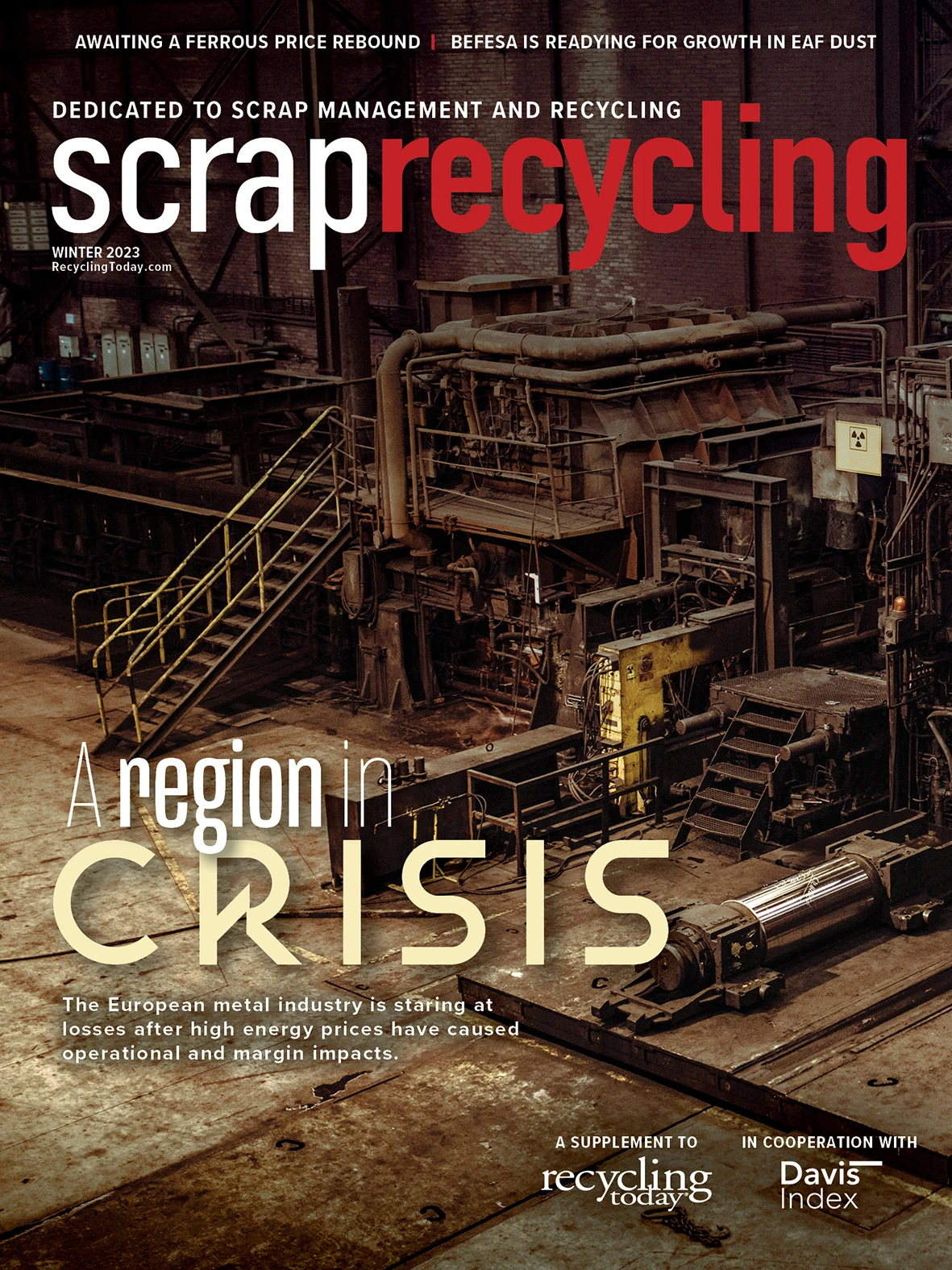

Nonferrous scrap trader Michael Lion has spent a multidecade career spanning four continents and has observed substantial changes in how nonferrous scrap metal is processed and where it flows. After stints at several global firms, Lion runs his own Asia-based trading and consultancy firm, Everwell Resources, and volunteers as chair of the Bureau of International Recycling International Trade Council.
In the following interview, Lion discusses the arc of his career, comments on a critical industry issue and offers advice to those considering an international business career.
Q: When and how did you get your start in the scrap business?
A: I started in the industry in 1967. I had before that been walked out of my upper-crust British public school and gone and played in blues bands. And having done that for a couple years, when I was only about 17 years of age, I then joined the family business [in London], Philipp & Lion. The partners who were running the scrap side of the business gave me North America to deal with on the grounds that there was really nothing to do.
But in 1973, President Nixon decided to stop the control of the export of scrap, and, suddenly, I was able to buy thousands and thousands of tons of scrap, particularly copper and copper-bearing scrap and alloys from North America. I was helped enormously by the fact that the late Jake Farber of Alpert & Alpert took me under his wing and introduced me to many people on the West Coast—the right place at the right time.
Q: And from there, where did you go? I know it gets complicated.
A: It’s true to say that my career wasn’t without controversy, and some of that I’m not terribly proud about.
Basically, Philipp & Lion at the beginning of the 1990s went fairly spectacularly bust. Primarily the buck stops with me, obviously, as the chairman and CEO of the company, and rightly so. I was pretty devastated by the whole thing and moved to the United States, selling secondhand cars in Culver City, California.
Thankfully, Jake and others wanted to encourage me back into the business. Soon, John Crabb of Sims, one of the most eccentric characters [and] who was the managing director in those days, had bought a business at that time in the U.S. and made it the Sims outpost on the West Coast. He approached me, I think more out of kindness than any belief that I would really do anything much, and I joined the company not as an employee but as a consultant. In 2007, we set up Sims Metal Management Asia Ltd. in Hong Kong, of which I was chairman, and that [company] handled all the nonferrous marketing not just for Asia but for the entire world.
Q: Considering proposed trade barriers, is the heyday of sending nonferrous scrap across the water perhaps coming to a close?
A: During my career over the last 55 years in the industry, we’ve seen a growth and burgeoning of the global reach of recycling, which has been an enormous benefit to the industry, and not just our industry, but to the consuming industry as well. But, unfortunately, I really do see the specter of more controls.
If [a proposed directive in Europe] goes ahead, it will undermine the viability and profitability of recyclers in Europe because there is simply no possibility of supplying all those materials or holding onto materials when the consumers [in Europe] don’t want it or they fill up. It will actually be extremely retrograde for the industry and have exactly the opposite effect to that which legislators claim they want—namely to encourage sustainability.
Q: Looking forward now, can you identify one or two key pieces of advice or guidance to a young person entering either the scrap industry or the international business arena?
A: My advice is this: When you go and do business in other people’s countries, you need to recognize that nobody asked you to go there. If you want to do business in other people’s countries, then try to understand their culture and to try to understand and accommodate their ways of doing business. And try and make your business plan fit in with what they require, not go to tell them what they should be doing the way you’ve done it in your country.

Explore the Winter 2023 Scrap Recycling Issue
Check out more from this issue and find your next story to read.
Latest from Recycling Today
- Athens Services terminates contract with San Marino, California
- Partners develop specialty response vehicles for LIB fires
- Sonoco cites OCC shortage for price hike in Europe
- British Steel mill’s future up in the air
- Tomra applies GAINnext AI technology to upgrade wrought aluminum scrap
- Redwood Materials partners with Isuzu Commercial Truck
- The push for more supply
- ReMA PSI Chapter adds 7 members





